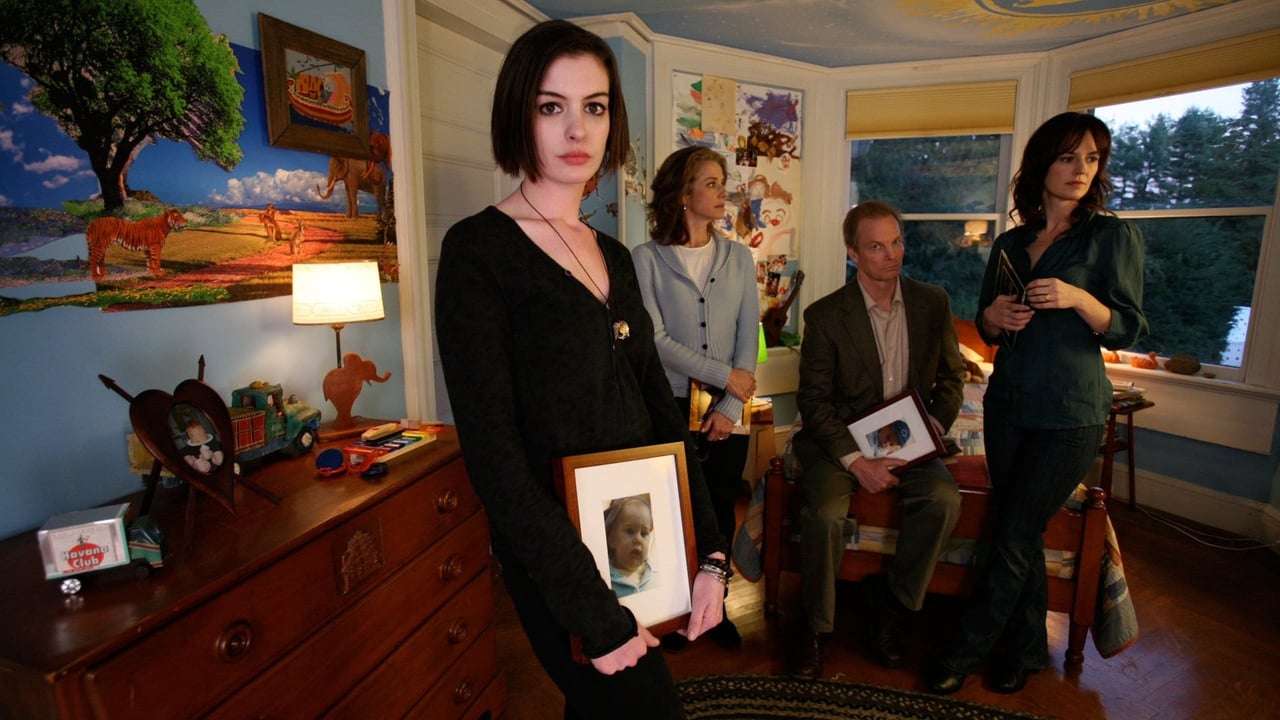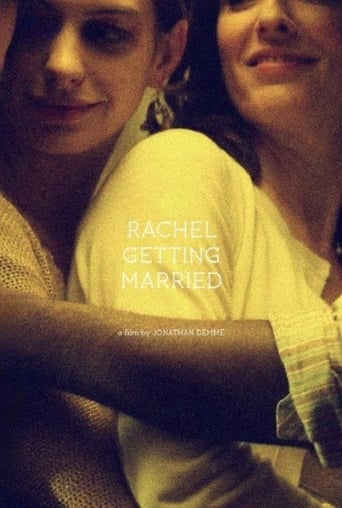gavin6942
A young woman (Anne Hathaway) who has been in and out of rehab for the past ten years, returns home for the weekend for her sister's wedding.For the life of me, I have no idea why this film was praised so much and especially the praise for Anne Hathaway. I find her performance to be just "blah" and really nothing special when it is supposed to be an incredible Oscar-worthy portrayal of a recovering addict.What made me most disappointed by the film, though, is just how much filler it has. Scenes run on far too long. Do we need multiple scenes of people dancing at the wedding? How many toasts do we need at the rehearsal? It seems like any attempt to have a plot is drowned out by conversations or events that really do not matter.
teh_scarlet
Seeing the reviews for this movie I was hoping to see a movie of European style where you can feel the depth through the story which some will consider as -nothing happens through the whole film.And-as I have expected-it was just that.Front story pictures Kym as younger, rebel/addict sister who makes a great contrast next to elder sister Rachel miss "doing everything right in life". Their relationship is portraying a question of why does the little messed up sister has all the love and attention of their father, and can this struggle between sisters finally be settled in a few days around a big event such as Rachel's wedding.I can easily say that performances were on a same level by Anne Hathaway as for Rosemarie DeWitt. It really hits the point between younger-older sister relationship. The two characters are very different but despite that, sisterhood connection is still strong and in the end that is all that matters and can lead you through all the past painful memories.Secondary, story about divorced parents with new partners and next to it, how the two families meet for the first time preparing for a big event is carrying the red line next to the sisterhood story just perfect through the movie. And of course we cant get pass the sisters father outstanding performance by Bill Irwin.altogether; 8/10
tieman64
Jonathan Demme's "Rachel Getting Married" stars Anne Hathaway as Kym, a young woman who has been recently released from a drug rehabilitation centre. Kym was at the wheel during an accident in which her brother Ethan died. Kym's mother blames Kym for Ethan's death, as does Kym's sister, Rachel (Rosemarie DeWitt). Guilt-ridden, and in the throes of a severe persecution complex, Kym clashes with her family members, particularly her sister, who blames Kym for "hogging all the attention" in the aftermath of Ethan's death. By the film's end, mother, father and siblings learn to forgive, forget and move past traumas. Cue hugs.Reminiscent of "Ordinary People", "Girl Interrupted", "A Woman Under the Influence" and "Margot at the Wedding", "Rachel Getting Married" also finds Demme attempting an aesthetic evocative of Robert Altman and John Cassavetes. The film has been praised for its "edginess" and "realism", but too often assaults us with contrivances, clichés and overcooked moments in which Hollywood actors contort their faces and strain desperately to convey DEEP EMOTIONS. The film's pretence at being "naturalistic" rubs awkwardly against what is super-charged melodrama. When a daughter punches her mother in the face and crashes a Mercedes into a tree, it's hard not to giggle. Throw in surprise pregnancies, alcoholism, sibling hatred, divorce, anorexia, sexual molestation, two car crashes and dead kids, and you have a movie that plays like a tabloid talk-show. Influenced by Hal Ashby's "The Landlord" (Demme adores Ashby), "Rachel Getting Married" attempts to sketch a portrait of a multi-cultural, post-racial America. And so the film is packed to the brim with whites partying alongside African Americans, Asians, and Indians. Bizarrely, though not surprisingly (America is in no meaningful way post-racial), none of these black characters are given significant roles or input into the film's central drama. African Amerians remain at the level of good-natured, smiling ciphers, Demme portraying them with the same benign attitude (singers, dancers, Bible-junkies etc) common in minstrel shows. "Multiculturalism" is still coded as wallpaper for white, upper-middle-class, suburbanite issues.Demme, incidentally, has throughout his career made an effort to exhibit a certain "sensitivity". He made two documentaries on Haiti, one about the aftermath of Hurricane Katrina, dealt with African American slaves in "Beloved" and sketched a character in "Philadelphia" whose parents were "totally fine with his homosexuality". In "Rachel", Demme packs his film with whites wearing saris, musicians playing sitars, wedding cakes shaped like Indian elephants, Orthodox Christian icons, Jamaican reggae singers, jazz musicians, belly dancers and people yelling "L'chaim!" whilst making toasts. For Demme, race is "no big deal", and he's right, but the film nevertheless has a certain engineered feel. You're always aware of the forced political correctness, a saintly stance which clashes awkwardly with the film's cold shouldering of Rachel's fiancé (Tunde Adebimpe) and his family."Rachel Getting Married" was written by Jenny Lumet, daughter of Sidney Lumet. It contains several "musical interludes" (and references to Neil Young), some of which recall Demme's many concert films. Like watching the fatal crash of a clown car, it's both riveting and ridiculous.7/10 – Worth one viewing.

